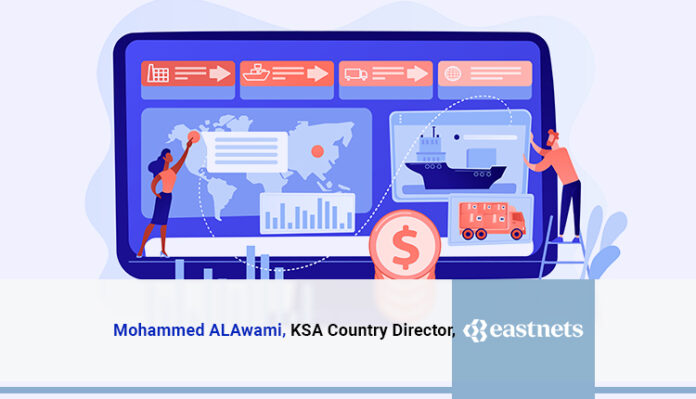Mohammed ALAwami
The GCC Region has emerged as a clear leader in the payments industry, prompting the question: what can the West learn from this region’s payment revolution?
In late 2024, Saudi Arabia achieved a remarkable 98% adoption rate for contactless payments in face-to-face transactions, a significant leap from just 4% in 2017. This transformation, among many others, has leapfrogged the region into the future, while the West continues to debate incremental upgrades to ageing payment systems. With innovative approaches towards regulation, payment technology and improving adoption and collaboration, there is much the West can learn from the GCC Region’s modernised approach.
Connecting national vision with financial transformation
Swift Service Bureau (SSB) recently launched in Saudi Arabia, marking a significant step in the country’s private sector–driven financial evolution. While not the first of its kind globally, this regional milestone reflects how technology providers are investing in scalable, secure infrastructure aligned with the goals of Vision 2030 and the Kingdom’s ambition to become a leading financial hub. By adopting a proven model tailored to local needs, the initiative supports the unification of international payment standards and the reduction of operational overhead.
In a region where economies are deeply connected to cross-border financial flows – the growing trade and active logistics hubs – reducing delays, costs, and inefficiencies is critical. The launch of Saudi Arabia’s first SSB represents a targeted response to these challenges, enabling faster, more secure, and standardised transactions. Rather than simply adding another payment network, this initiative reinforces the Kingdom’s adoption to modern financial infrastructure that meets both regional needs and global standards.
Catch more Fintech Insights : Enhancing Cybersecurity in Financial Services through Adversarial Exposure Validation
Flipping the narrative and making regulation a launchpad
Regulation often feels like the equivalent of wrapping a new idea in bubble wrap and paperwork and carries the reputation of an overprotective parent – slowing progress rather than enabling it.
Yet Bahrain has managed something rare: flipping the narrative entirely. Instead of acting solely as gatekeepers, Bahraini regulators decided to become collaborators. Their fintech sandbox isn’t merely a regulatory innovation; it’s psychological brilliance, transforming a potentially adversarial relationship into a partnership.
Due to this collaborative approach, several fintech organisations have seen striking results from practical experiments. Tarabut Gateway, for example, which pioneered open banking APIs, reshaping how banks and customers interact. Rain, a cryptocurrency exchange, tested compliance frameworks safely, quickly becoming one of the Gulf’s trusted crypto players. Elsewhere, startups trialled AI-driven identity verification and seamless cross-border payments, all under the watchful yet adaptive guidance of Bahraini regulators. Successes were rapidly scaled; failures offered immediate lessons, free from damaging legal fallout. Bahrain proves regulation, thoughtfully applied, can genuinely empower innovation rather than restrict it.
How the prioritisation of unified standards and cross-border interoperability can create real opportunity
Around the world, financial institutions are embracing industry standards like ISO 20022 to streamline data, enhance transparency and reduce friction in cross-border transactions. In the GCC, this shift is being actively adopted, not just as a compliance effort, but as a strategic opportunity to modernise infrastructure and boost efficiency.
For example, Saudi Arabia’s implementation of ISO 20022, including through the SSB, is helping accelerate transaction speeds and improve data quality. The UAE and Saudi Arabia also jointly piloted Project Aber, a digital currency initiative that significantly reduced settlement times for interbank payments. Similarly, Bahrain’s collaboration with fintechs has simplified previously burdensome remittance processes, reducing both cost and complexity.
How the region embraced innovation and digital finance
Consumers across the Gulf have embraced new technologies introduced in the region’s payment transformation with significant speed and enthusiasm. Saudi Arabia experienced a near tripling of mobile payment volumes in the same year, with mobile transactions accounting for 35% of all payments. Similarly, in Bahrain, mobile wallet payments surged by 196% in 2021, contributing to almost a 50% year-over-year increase in digital payment volumes.
When compared to the success in the GCC Region, the West appears to still be struggling with financial inclusion. Distrust, geographic isolation and high fees are only a few of several reasons millions of consumers in the US remain unbanked or underbanked.
Digital solutions exist, but widespread adoption has lagged, partly because major institutions view inclusion as a long-term aspiration rather than an immediate priority. The Gulf shows that when digital tools are made integral to daily life, rather than optional extras, the barriers to financial inclusion quickly dissolve.
Moving forward into the future of finance
Reflecting on the Gulf region’s continued refinement of its payment systems, Western players can either treat these developments as an external threat or as a chance to rejuvenate their own approaches.
The experimentation of digital currencies, advanced data protection laws, and AI-driven compliance has spurred the GCC Region forward as a leader, and example, within financial services.
The question we face now is whether other markets will step up, follow suit, and even surpass these achievements.
With global financial landscapes evolving at record speed, hesitation carries its own risks. Perhaps the most critical lesson from the progress in the GCC Region is that bold bets have the potential to pay off.
Read More on Fintech : From Reactive to Resilient: 3 Practices to Help Financial Firms Thrive Amid Regulatory Change
[To share your insights with us, please write to psen@itechseries.com ]
